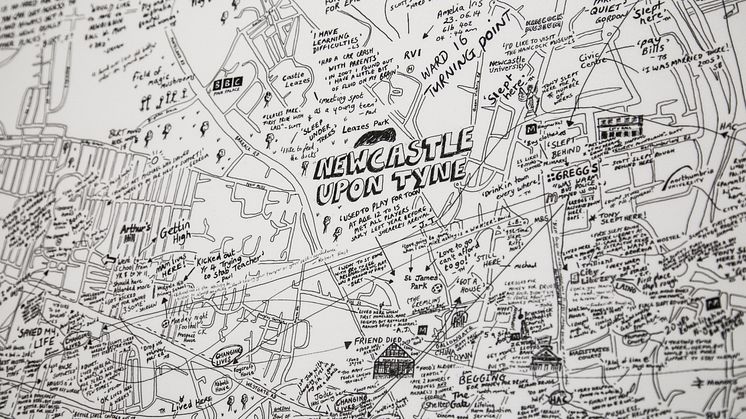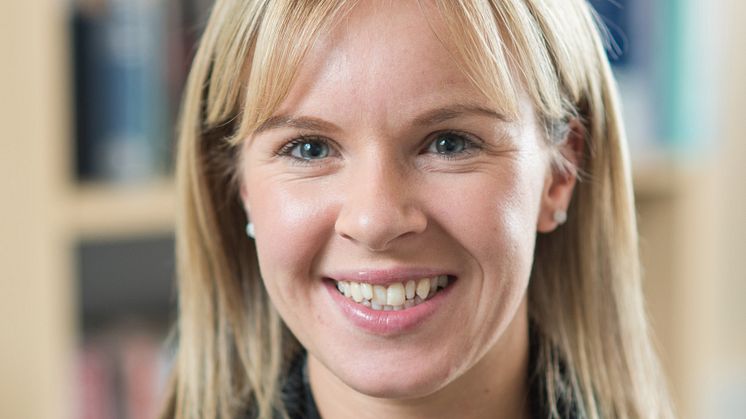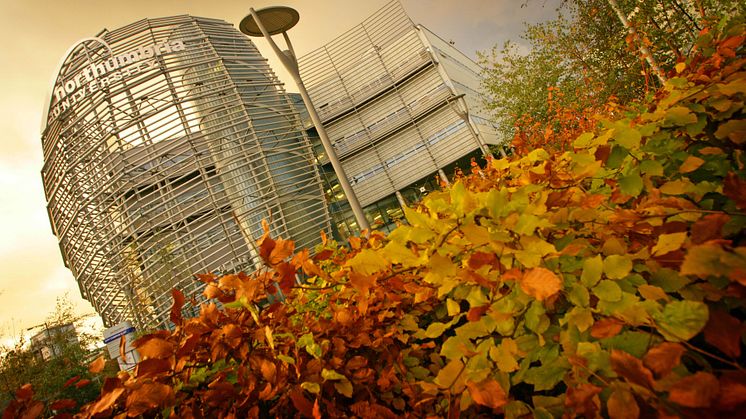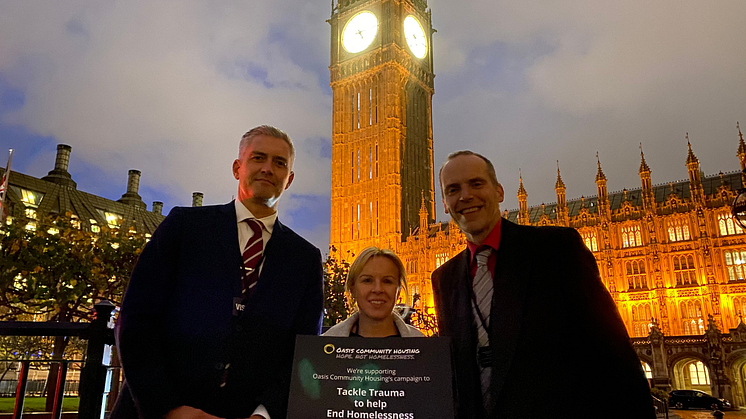Press release -
Sounding Off! Northumbria academics create interactive ‘sound-walk’ about street homelessness
Interactive signage is to go up around Newcastle city centre this week to help raise public awareness and understanding of street homelessness.
The ‘sound-walk’, created by Northumbria University academics Oliver Moss and Adele Irving, is the first of its kind in the UK and will be installed at seven locations around the city. These include Newcastle Central Station, Newcastle City Library, Northumberland Street and Pilgrim Street. Marked by an interactive QR code, each location has been chosen for its significance to homeless people and acts as a portal to a range of multimedia content, including audio files and photographs. This material, all accessible via smartphone, will allow passers-by to gain a unique insight into how the homeless participants became homeless, their experiences of sleeping rough and the challenges of moving on from this, in their own words. There are also contributions from the local authority and other organisations that work with homeless people on key policy and service delivery issues raised by the testimonies.
Newcastle City Council aims to ensure that no-one needs to be homeless and has been working with Oliver and Adele to support their research. In order to prevent street homelessness, an outreach service goes out seven days-a-week to look for people who are asleep on the streets or who look as if they have been sleeping rough. They encourage people to take up offers of accommodation and to go to a day centre to get warm, have food, a hot drink and a shower. Most people can be found accommodation within a day. However, as the Sounding Off project demonstrates, preventing and tackling homelessness is often complicated by individual circumstances, statutory duties and funding arrangements for different categories of people at risk of homelessness.
The key issues raised through the sound-walk include pathways into homelessness, addictions, offending, survival on the streets, why some people ‘choose’ to be on the streets, and begging and criminal justice responses to this. Also cover is information on where homeless people can go to access support, the challenges of moving on from homelessness and the conflicts between central government policy and local problems and priorities.
Oliver Moss, Senior Research Fellow in the Department of Social Sciences at Northumbria University, said: “At this time of the year, encounters with visible street homelessness are especially poignant. The aim of Sounding Off is to offer just a small glimpse into the lives of those we might see living or sleeping rough in Newcastle. While we make no claim to the chosen 'stories' being typical or representative (every episode of rough sleeping is different and devastating for the individual concerned), they nonetheless draw attention to some of the most acknowledged risk factors pertaining to rough sleeping.
“Responses from key stakeholders, meanwhile, offer a sense of some of the challenges and complications of tackling homelessness among people with often complex needs. As one stakeholder notes, supporting those sleeping rough is rarely as simple as providing a roof over their heads.”
Sounding Off will be launched on Friday 13 November at 9.30am at Newcastle Central Station. Members of the public are welcome to attend, free of charge. The project has been supported by both Newcastle City Council and the Economic and Social Research Council (ESRC) and takes place during the ESRC’s annual Festival of Social Sciences celebrations. Additional development work has been carried out by creative design agency Urban River.
Adele Irving, Senior Research Fellow in Northumbria’s Department of Social Sciences, added: “The sound-walk can be undertaken digitally via the project website. However, we would encourage members of the public to engage with as many of the QR codes as possible as they walk around the city and to immerse themselves in the sights, sounds and other sensory details of these locations. Once identified, the QR codes must be scanned using a QR code reader, which are available for free download using a smartphone.”
For more information about this project visit the blog at:www.soundingoffaninvestigationofvisiblestreethomelessness.wordpress.com.
Northumbria offers a range of courses in social sciences. To find out more go to:www.northumbria.ac.uk/socialsciences or sign up for our next Open Day on November by visiting:www.northumbria.ac.uk/opendays
Photo credit: David Bilbrough
Topics
Categories
Northumbria is a research-rich, business-focused, professional university with a global reputation for academic excellence. To find out more about our courses go to www.northumbria.ac.uk
If you have a media enquiry please contact our Media and Communications team at media.communications@northumbria.ac.uk or call 0191 227 4571.











